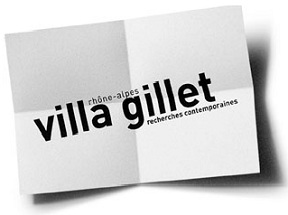An interview with Douglas Kennedy - Assises Internationales du Roman 2012
https://video.ens-lyon.fr/eduscol-cdl/2012/ANG_2012_dkennedy.mp4
Transcript of the interview (Subsistances, Lyon, 02/06/2012)
Clifford Armion: I would like to ask you a few questions your latest novel, The Moment, which tells the story of a young American writer, Thomas Nesbitt, who goes to Berlin to write a travel book. I guess you did a lot of research about Berlin during the Cold War; the wall is almost a character in the book. Why did you choose to tackle that particular period of history?
Douglas Kennedy: I’ve always used cities as people. New York in The Pursuit of Happiness, London in A Special Relationship. I was in Berlin in 1983 – I had a fellowship from the Goethe Institut – I was actually in the West but I came to travel to East Berlin and I thought it was extraordinary. What was most extraordinary of course was flying into what was essentially a closed city. The wall was there from the plane: I described that in the novel. It was the first time I crossed over to a communist country. I visited six subsequently. You couldn’t travel much in East Germany because there were very strict restrictions and you got what I called the Cinderella visas. At Checkpoint Charlie you had to be out by midnight or the Volkspolizei and the Stasi would turn you into a pumpkin I guess. Years went by, the wall came down, I became a writer – a proper writer – and I then found an apartment in Berlin, Prenzlauer Berg (ich spreche Deutsch auch). I started spending time there. I was going through a divorce and I started thinking very much about regret in life. Things began to come together: just the way I could now traverse the city freely, going to the Schiller Theater for one night, leaving my flat in Prenzlauer Berg and doing this trip that would have required crossing international boundaries some years earlier and I was just part of the same city. History has a tendency to eradicate itself. People forget about the Cold War, especially if they’re younger. I think people under the age of forty have very little cognisance of what it was all about. So I wanted to go back to that but also to write – like in The Pursuit of Happiness – the story of two people who fall in love. But there are outside circumstances, larger political circumstances that destroy things.
C.A.: What about that arty community with Alistair who becomes a very important character as the story unfolds?
D.K.: I invented that completely. I’m a novelist: I have an imagination. Everyone always expects that if you write something, it actually comes out of your own life. If you’ve read The Big Picture, I’ve never killed one of the lovers of my ex-wife with a bottle of wine. If you’ve read A Special Relationship, I’ve never had a post-natal depression. Although I did not live in Berlin in the early 80’s I had artist friends who were there and I knew some of the people. So in invented that life in Kreutzberg though I did have an artist friend who was Irish and who lived in Kreutzberg, but he was very different from Alistair. I knew people like Alistair. That was very much part of life there. Who came to Berlin? Germans came to Berlin from the West, to West Berlin, because if they lived there they could avoid military service. People came there because it was cheap and it was sort of demi-monde. It was also edgy: you were in a very confined space. That made for a very interesting place.
C.A.: I was really interested by that woman Thomas meets on the plane when going to Berlin. She’s obviously a very bitter and sceptical woman. Is she a sort of warning for what is going to happen to Thomas?
D.K.: Everyone carries baggage with them and if you drop yourself into a complex city and you go to work for a propaganda unit of the West which is based on Radio Free – I call it Radio Liberty in the book – you’re dropping yourself into the middle of something very complicated. When you visit a place, you can never really feel you belong to it. I’ve lived in Paris off and on for twelve years, I speak the language fluently, I am probably the best selling American writer in this country now and I’ve been treated wonderfully, I’ve been decorated and all that, and yet I would never think I was part of it, because I’m not, I’m not French. One of the reasons I went back to reside part of the time in America was that I felt that was my argument: the States, it’s in all my books. I’m an American and I wanted to be part of the argument again. Thomas makes the mistake of thinking he can control a situation which is outside of everybody’s control, especially when espionage comes into the plot.
C.A.: Actually you use the word hubris in the last chapters of the book. Is Thomas a sort of tragic hero in the classical sense?
D.K.: I think Freud is very right. We are all essentially shattered by our childhood and fundamentally you never get away from that. It’s why people make the same mistakes over and over again, especially when it comes to love. He’s someone who is desperate for love but, because of his childhood, he doesn’t think it’s possible. And then he discovers it for the first time. I think the book really captures what it means to actually fall in love for the first time, when you have this absolute, driving, overriding sense that this is it. And then it goes very wrong and instead of actually listening to what Petra, his lover, is trying to tell him, he reacts hubristically and he basically destroys his life. He’s never gotten over it: his entire life since then has been shaped by that. I think that happens a lot. You don’t know anything in your twenties, you really don’t. People think they do. You have to think you do, you have to think you’re actually aware of the world but you know nothing because you haven’t been beaten up by life as yet, and life will beat you up, that’s one thing that’s very sure. I recently said this to my daughter who is sixteen and has been going through the usual adolescent stuff. She’s an extremely smart and intelligent and thoughtful young woman. I just said, look, there are aspects of life which are just rubbish and sometimes life is profoundly unfair. You’re going to meet people who don’t like you, who will put you down. And there is the other aspect of life which is quite miraculous: how you can struggle with all that determines so much. I’m sure you know people who are always negative, who are always saying that things are difficult. Half the people I know in Paris would say ‘Oh je suis crevé’, I have friends for whom everything is always difficult. You don’t have to be happy all the time, that’s nonsense. But I think you owe it to yourself to try and have an interesting life and remain curious and to look upon life very much as an adventure where you don’t really know the plot.
C.A.: At some point Thomas says: “When I write, there is an order to things. I am in control. Except that’s a lie.” Throughout the book, writing is seen as a sort of therapy of alleviation. Is that how you feel about writing personally?
D.K.: Absolutely. Even though it’s not a story from my own life – it’s not autobiographical, it’s not a roman à clé – it’s a very personal book. I was writing this in the middle of a very difficult divorce which I wanted after 25 years but which was nonetheless hugely difficult and unpleasant. So in a way I was writing very much about keeping my own equilibrium in a difficult situation even though that does not come into the book. Sartre had a point when he said “l’enfer c’est les autres”, but the biggest hell on earth usually is yourself. The thing is that when you write you can control things. When I write I can punish the wicked, I can make things right or I can make things wrong. Generally I make things wrong if you know my books. I can pose all sorts of moral questions and I can determine how things turn out. That’s not life. Life is very different because there are other people and also there’s yourself. I said to someone quite recently that the hardest question in life is one of the simplest: what do you want? It’s very hard for people to answer that question. When I ask that question to people they usually shudder, because it hits them, because they don’t know and most of us don’t know. When someone says “I really know what I want” I’m always dubious: I don’t like that kind of people. I actally like people who see things in a grey way rather than black or white. Manichean people are dangerous, that’s George W. Bush...
Pour citer cette ressource :
Douglas Kennedy, Clifford Armion, An interview with Douglas Kennedy - Assises Internationales du Roman 2012, La Clé des Langues [en ligne], Lyon, ENS de LYON/DGESCO (ISSN 2107-7029), juin 2012. Consulté le 24/02/2026. URL: https://cle.ens-lyon.fr/anglais/litterature/litterature-americaine/litterature-contemporaine/an-interview-with-douglas-kennedy-assises-internationales-du-roman-2012



 Activer le mode zen
Activer le mode zen


